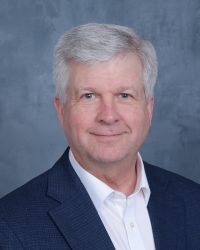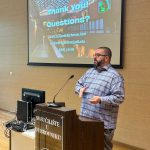David Cuillier Comments on the Lack of Available Television Coverage for the Upcoming Trump Trials
David Cuillier, director of the Brechner Freedom of Information Project, is the author of “Cameras in the Court: Why Most Trump Trials Won’t Be Televised” published in The Conversation on Aug. 22.

Cuillier writes about the unlikely television coverage of the upcoming court proceedings facing former President Donald Trump, with the exception of the case in Georgia. He mentions an Aug. 16 Quinnipiac University poll that 71% of Americans support television coverage of Trump’s trial related to his alleged attempt to overturn the 2020 presidential election results, and a June 2023 poll that found 64% support televising the classified documents trial.
According to Cuillier, “The near blackout will leave 330 million Americans relying on news reports, artist renderings and social media posts for the bulk of their information, despite wanting to see the live proceedings for themselves.”
He adds, “There are many reasons why all trials aren’t televised, spanning the history of case law, congressional legislation, empirical research, high-profile ‘circus’ trials and, in some cases, fear. But the courts have struggled to define how ‘public’ to make a public trial.”
Cuillier writes that given the significance of the Trump trials, the rules should be changed quickly to make sure the public has a firsthand view of what transpires. However, that would require and act of Congress and a rule change by the Judicial Conference.
“Perhaps a televised trial in Georgia will put the issue to the test by serving as a comparison, or experiment, of sorts. In the future, the U.S. may continue to move toward cameras in all courts, including the Supreme Court, through audio recordings, posting of transcripts, releasing video after the proceedings, and well-controlled courtroom decorum – until they begin streaming justice live, routinely, and for all,” writes Cuillier.
Category: Brechner Center, College News
Tagged: Brechner Freedom of Information Project David Cuillier
Subscribe to our News Digest


